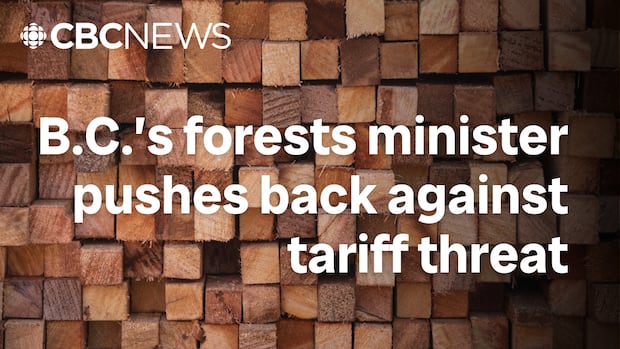The looming trade war with the United States has sparked uncertainty in B.C.’s housing market, with developers worried that the already sky-high cost of new construction is about to be driven up even further.
Carla Guerrera, CEO of Purpose Driven Developments, said the threatened U.S. tariffs are making it difficult to anticipate prices for things like appliances and plumbing fixtures, making it impossible for builders to project final costs and keep projects on track.
“Right now, we and our partners are frantically trying to look at where we can source Canadian products and divert away from some of the U.S. suppliers,” she said.
There are tens of thousands of active housing projects at various stages of development in B.C., all now grappling with the uncertainty, not to mention the potential viability of projects planned for the future.
“There are escalating costs where purchasing power is already constrained, and so the viability of projects comes into question,” said Ryan Berlin, a senior economist at real estate firm Rennie.
“To the extent that those conditions remain, we will see fewer projects come to market or launch than we already would have.”
According to the latest CMHC report, many condominium projects are already on hold due to low demand for high-priced presales.
“It exacerbates an already dire situation. We’ve already got projects stalled. This is going to see fewer homes being built,” said Anne McMullin, the CEO of the Urban Development Institute.
Fewer projects moving forward in the present raises the potential for even worse supply problems in the future. Unless, of course, there’s a swift and diplomatic resolution to the Trump tariff threats.
“There just will not be enough new home inventory to probably keep up with what demand will look like over that time, and that’s both rental and for sale,” said Greg Zayadi, the president of Rennie.
Trump eyes 25 per cent tariff on lumber
Meanwhile, B.C.’s Forests Minister Ravi Parmar says the expectation of more duties and additional tariffs piled onto Canadian softwood lumber would “absolutely be devastating” to the country’s industry.
Parmar says they expect the U.S. Commerce Department will issue anti-dumping duties by Friday of as much as 14 per cent, on top of the current 14.4 per cent duty.
It comes after U.S. President Donald Trump told media on Air Force 1 that his administration was eyeing a 25 per cent tariff on lumber some time around April.
B.C. Forests Minister Ravi Parmar was in California this week on a trade mission, making the case against tariffs, which would be layered on top of existing softwood lumber duties and could be devastating for B.C.’s already struggling forestry sector. As Katie DeRosa reports, officials in California say Canadian lumber will be key to their wildfire-rebuilding efforts
Parmar says he knows many forestry workers are going to be worried about their jobs, and he’ll continue to fight for them.
He says the extra tariffs are “very likely,” and Canada should take Trump at his word.
Trump has paused his threat of tariffs until March 4, but says he still plans 25 per cent tariffs on all Canadian goods and a 10 per cent levy on imports of Canadian energy.
Canadian steel and aluminum have already been singled out for 25 per cent tariffs.
Parmar was recently in California, where 16,000 buildings were destroyed by wildfires, meeting with builder groups who said they need Canadian lumber not only to rebuild but to prepare for FIFA events next year and hosting the Olympic Games in 2028.
“Imagine the president going to Los Angeles in 2028 to host the Olympics — I understand the guy likes to host parties — and as part of that, being in a city that hasn’t been able to rebuild because of the tariffs and duties he has put on goods from British Columbia, goods from Canada,” he told reporters in Victoria. “It’s ludicrous.”
Canada’s forestry sector recently described the threatened tariffs as unnecessary and unwarranted, given that the United States currently meets only about 70 per cent of its homebuilding lumber needs domestically and uses Canadian lumber to fill the gap.
If the threatened 25 per cent tariff is added to current and pending duties, the combined total on softwood exports to the United States will be closer to 50 or 55 per cent, Parmar said.
The U.S. last raised duties on softwood lumber from Canada in August from 8.05 per cent.
Parmar said he has already asked the federal government to support the industry under the threat of tariffs with loan guarantees and worker support.
“It’s important that we keep this industry going and those workers employed.”
He said they need to continue to make the case that while such tariffs hurt Canadians, they will also hurt Americans.
“Whether it’s the wildfires in California, the hurricanes in North Carolina, the cost of doing business, the cost of rebuilding their homes is going to skyrocket in those states.
“It’s important for the residents in those communities to know that those are the actions of their president.”
#B.C #construction #industry #warns #increased #costs #Trump #talks #tariffs #lumber












Leave a Reply